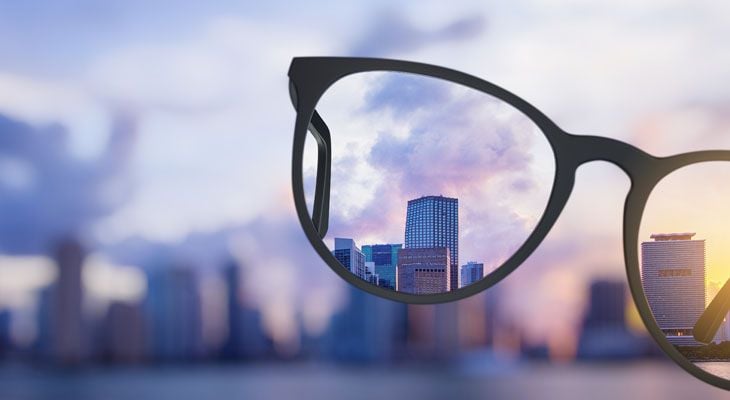Eye Focusing
- Created in How the Eyes Work, Basic Visual Skills

The eyes have a focusing system called accommodation; it allows for visual clarity. The system is rested when you look at an object that is far away and is not forced to strain like it would if the target were close. In normal circumstances, the eyes are able to effortlessly transition between objects that are far and near, and can sustain focus on items that are close, despite the added effort it places on the focusing system.
Problems With Focusing
However, if a problem arises with the system, the eyes have trouble focusing on objects that are nearby (accommodative insufficiency) or switching attention between targets that are far and near (accommodative infacility). They may also excessively focus on objects that are close (accommodative spasm). As a result of any of these impediments, the person may have blurry vision, diminished comprehension when reading, headaches, eye pain, eye fatigue, slow reading speed and trouble concentrating while performing tasks. All can affect a person’s academic capabilities or ability to perform daily tasks.
Often when issues with the eye focusing system develops, they are not related to the eyes themselves. Instead, they can be related to the brain’s inability to regulate the system because the neurological system has somehow been compromised. Poor eye focus could also transpire due to psychological or visual stress.
Correcting the Problem
Vision therapy can help, as it is a type of physical therapy for both the eyes and brain, and aims to train the visual system to correct itself. This non-surgical approach helps by using a combination of vision exercises and equipment to specifically target eye focusing problems that inhibit learning, reading and education. It also reduces eye strain.
Performed under the supervision of a vision therapy specialist, the exercises—which are conducted in an office up to twice a week for 30 minutes to an hour—are made to fit the individual needs of the patient. Some visual training workouts can also be done at home and are used to supplement in-office visits.
Equipment that may be used during a vision therapy session includes:
- Prisms
- Corrective or therapeutic lenses
- Eye patches or occluders
- Optical filters
- Computer software
- Electronic target with programmed mechanisms
- Balance boards
- Visual-motor-sensory training devices
The number of sessions depend on the severity of the eye focusing problem, as well as the associating symptoms (e.g. slow reading speed or blurry vision). Over time, vision therapy should improve essential visual skills and capabilities, enhance visual efficiency, and alter how the patient processes and understands visual information.
